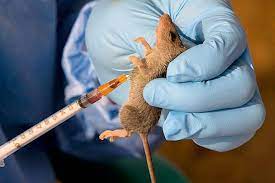
Lassa fever: Benue confirms 9 deaths, 46 confirmed cases
Nine people have passed away in the state as a result of an epidemic of Lassa virus, according to Dr. Yanmar Ortese, the commissioner of health for Benue State.
He disclosed this to reporters in Makurdi, the state capital, stating that 46 cases had been verified, of which five included health professionals and four were internally displaced people.
The State Epidemiologist, Dr. Sam Ngishe, addressed the matter further, stating, "The information that the Commissioner provided you is based on the situation report for week seven. We haven't given him any updates as of week eight.
As of right now, Benue has 46 cases of Lassa fever total, distributed throughout seven local government areas—Obi, Okpokwu, Gwer West, Makurdi, Guma, Gwer East, and Ukum—according to data obtained thus far.
When compared to last year, it is actually a rise. As of as now, nine deaths in confirmed cases have occurred.
"All of the deceased have been buried in compliance with safe burial practices in the different parts of the state from which they were originally. The Nigeria Centre for Disease Control and Prevention, the World Bank, and the Federal Government have all continued to support our efforts.
They have made a strong statement supporting more community risk communication (which changes social behaviour) and surveillance, as well as the laboratory portion of response and coordination.
As the federal government demands from all states, we now aim to lower the death toll so that the state's main fatality rate is less than 10%. Right now, our situation is higher than that number.
According to Ngishe, the first case was discovered in week 50 of 2023. She bemoaned the state's staffing deficit.
That being said, he stated that they are anticipating having adequate staff members join and assist with the response.
"We have documented cases in the internally displaced populations (IDP) camps, specifically in the Ortese camp. Additionally, we collected multiple samples from the host community, but none of the samples yielded positive results.
But as you are aware, there is active community monitoring, and the IDP camp is a cluster setting with really inadequate infection control due to poor sanitation, a congested atmosphere, and malnutrition problems.
"The IDP camp has a high population of rats, based on our report thus far. If the rats that are transmitting these diseases are within the IDP camps, it means that we need to work hard to prevent an outbreak that will be challenging to contain."
The expert provided confirmation that the state is working together with partners to ensure that no humanitarian disaster more than what is already happening is recorded.





